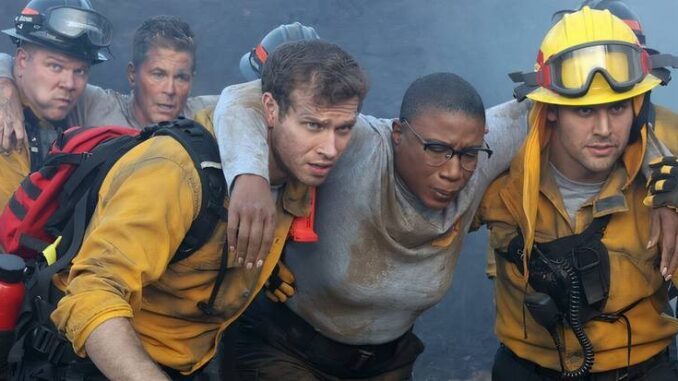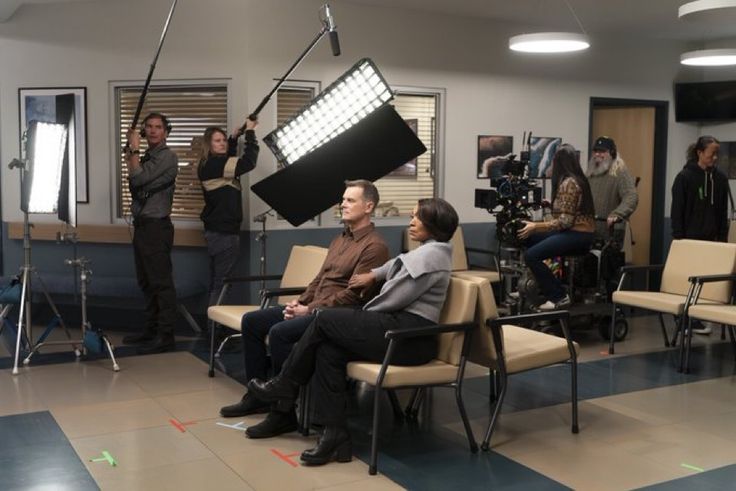
The 9-1-1: Lone Star ending presented the audience with a fakeout concerning Owen’s survival. The episode led the audience to believe he sacrificed his life to save the rest of the main characters, but a time skip revealed he survived his ordeal and actually moved back to New York to lead a firehouse there. This ending means that Owen missed out on Judd’s (Jim Parrack) promotion during that time skip as well.
Judd was Owen’s right-hand during much of the series. Judd was also a close friend of Owen’s. As the only survivor of the original crew at the firehouse before Owen took over, Judd had a lot of baggage to work through during the series, but he and Owen made it work, and they were both stronger for it. Owen missing out on Judd’s promotion in order to make the audience believe Owen actually died was disappointing for the audience already, but seeing Owen make the trek to Nashville when he was not there for Judd would also be a disappointment.
There are already some who believe that Owen should have died in the series finale. Owen was, after all, fully prepared to sacrifice himself for his team. It would have brought the show full circle since it began with a single member of the firehouse left alive, but with the series ending, all of the characters were given their version of a happy ending instead. With that in mind, not even seeing Owen congratulate Judd on taking over is a bit of a letdown. The writers would have to come up with an incredibly convincing reason for Owen to pop up in 9-1-1: Nashville in order to make the storyline work.
The finale of 9-1-1: Lone Star had all the ingredients for an emotional and powerful close: character arcs tying up, heartfelt promotions, and long-awaited resolutions. But instead of sticking the landing, it stumbled. Why? Owen Strand, one of the series’ core characters, chose to head to Nashville—leaving Judd Ryder’s promotion unacknowledged. That single decision didn’t just feel off—it actually made the ending feel emotionally hollow and disjointed.
Let’s unpack why Owen’s absence at Judd’s career-defining moment wasn’t just a small misstep—it was a massive blow to the show’s narrative payoff.
The Significance of Judd’s Promotion
Why Judd’s Moment Mattered Most
Judd Ryder wasn’t just any firefighter. From season one, he’s been the rock of the 126. Loyal, strong, and deeply respected, his promotion should’ve been a centerpiece of the finale.
The Weight of Brotherhood in Firehouse Culture
Firefighters aren’t just colleagues—they’re family. A promotion isn’t just a step up; it’s a symbolic milestone for everyone. For Judd to be promoted without Owen—the man who recruited him, guided him, and shared countless life-or-death moments with him—was a glaring emotional absence.
Owen Strand’s Character Arc—A Study in Missed Connections
From Leading Man to Distant Figure
Owen Strand started out as the glue holding the team together. But over time, especially in the finale, he felt disconnected.
The Sudden Nashville Detour—Character Growth or Narrative Shortcut?
Heading to Nashville might have set up future storylines or hinted at a spin-off, but in the context of a finale, it came across as rushed. It undercut the emotional weight of Judd’s celebration and left fans feeling like something essential was missing.
Breaking the Emotional Payoff
What Makes a Finale Great?
Strong finales close loops. They honor relationships, tie up storylines, and deliver on long-teased emotional beats.
Lone Star’s Finale Felt… Unfinished
By removing Owen from the heart of the firehouse in its final moments, the show missed a critical chance to give fans the emotional closure they deserved.
Audience Expectations vs. Reality
Fans Wanted Unity, Got Absence Instead
Social media lit up after the finale—not with praise, but with confusion and disappointment. Where was Owen? Why wasn’t he there for Judd?
Emotional Abandonment or Poor Writing?
Whether intentional or not, it felt like Owen abandoned Judd. And by extension, the writers abandoned their commitment to meaningful relationships.
The Importance of Character Relationships in 9-1-1: Lone Star
Owen and Judd’s Deep Bond
Their bromance has been central since the pilot. They’ve saved each other’s lives, shared deep personal losses, and led the 126 through hell and back.
Missing the Promotion Felt Like a Betrayal
Not showing up for Judd wasn’t just a character choice—it felt like a betrayal of everything their relationship stood for.
The Fallout—What It Means for Fans
The Disconnection Runs Deep
Fans are emotionally invested. When the show doesn’t honor that investment, especially in a finale, it leaves a sour taste.
The Finale’s Missed Opportunity
Imagine if Owen had been there, emotionally overwhelmed, giving Judd the praise he deserved. That scene alone could’ve brought the house down. Instead? Silence.
Narrative Cohesion vs. Future Teasing
Did The Show Sacrifice Closure for a Spin-Off?
Owen’s trip to Nashville seemed like setup for something else—maybe another series or a solo arc. But in doing so, it derailed the narrative cohesion of the Lone Star finale.
Planting Seeds or Pulling Focus?
There’s a difference between teasing what’s next and abandoning what matters now. The finale did the latter.
The Writing Perspective—Where It Went Wrong
Finales Need to Focus
Final episodes must deliver emotional closure. This one spread itself too thin.
Judd Deserved a Full-Circle Moment
Judd wasn’t just promoted—he earned it through sacrifice, loyalty, and leadership. The lack of a celebration with Owen robbed the moment of weight.
Why Owen’s Absence Was More Than Just Physical
Symbolism Matters
When key characters miss pivotal moments, it sends a message. Owen’s absence symbolized detachment and lost connection.
Fans Deserve Better
You invest five seasons into a show, and the least you expect is a finale that honors the relationships you’ve come to love.
Comparing With Other 9-1-1 Franchise Finales
When Finales Work—And Why Lone Star’s Didn’t
Compare it with 9-1-1 (the original series), where finales bring characters together. Lone Star broke that formula—and it showed.
The Emotional Cliff That Could’ve Been Climbed
A Missed Farewell Between Owen and Judd
One emotional hug, one word of affirmation—anything could’ve changed the tone.
Instead, We Got Silence
The lack of interaction left a gaping emotional hole in the episode.
Could This Be Fixed in the Future?
Retcons and Flashbacks
If there’s a reunion or follow-up, flashbacks could patch the gap. But the damage has been done.

What Should’ve Happened Instead
Owen Needed to Stay One More Day
Even a short appearance—just to see Judd rise—would’ve meant everything.
Loyalty Over Location
The finale should’ve prioritized emotional loyalty over a rushed narrative relocation.
Conclusion: A Finale Undone By Absence
The 9-1-1: Lone Star finale could’ve been a masterpiece. Judd’s promotion had all the emotional juice needed. But Owen’s choice to travel to Nashville felt like an emotional blindside. It didn’t just weaken the final moments—it fractured the emotional spine of the entire series. In storytelling, presence matters. And in the case of Lone Star’s final episode, the absence spoke louder than words.
